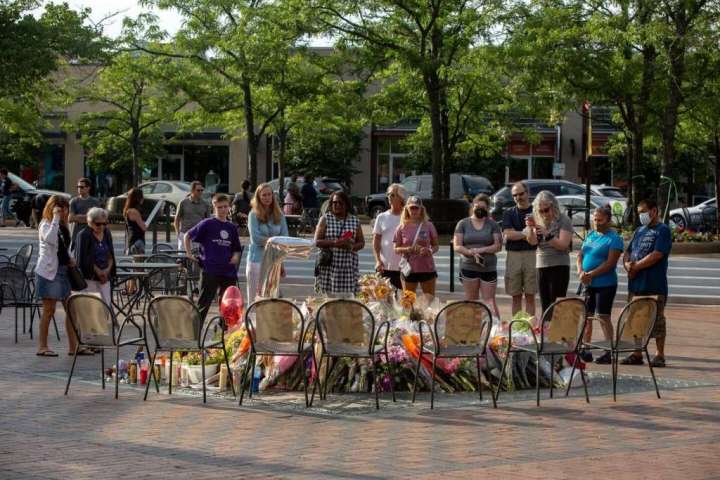What is a dead parent worth?
A murdered parent should be worth more than $1.4 million

Donations function as votes: This person is worthy. This cause is important. In the aftermath of mass violence, individual altruism becomes a grim barometer of our collective conscience. And crowdfunding provides a revealing, often dispiriting catalogue of which qualities and causes tend to activate public sympathy — and of how much sympathy there is to activate at all.
Manicured narratives play better than messy realities. Donors are more likely to kick in for one-time efforts than for chronic problems. One analysis suggested that campaigns for Black and Hispanic recipients perform less well than those for White and Asian people.
It’s no surprise — and reflective of basic decency — that children who lose parents to violence are an easy cause to take up. As I type this sentence, more than 57,000 people have donated nearly $3.2 million to support Aiden McCarthy, whose parents, Irina and Kevin, were shot dead at the July 4 parade in Highland Park. More than 51,000 people have given more than $2.8 million to a fundraiser for the children of Irma Garcia, who was killed trying to protect her students at Robb Elementary School in Uvalde, and her husband, Joe, who died of a heart attack after his wife’s murder.
Those figures wildly exceed the goals the organizers set — and still feel totally insufficient. After all, what figure could possibly make up for the experience of being lost in a panicked crowd after your parents have been murdered, or for knowing your father died of a broken heart? And how in the world can we assign a value to a parent’s tender presence after a nightmare, a lesson in how to ride a bike, a walk down the aisle?
As the father of a firefighter who died on 9/11 told the New Yorker’s Elizabeth Kolbert in 2002, “I would like them to say we all get a trillion dollars, just so I know my son was worth a trillion dollars, not that I would ever want it.”
At least there was collective agreement that the 9/11 victims deserved something. Crowdfunding in response to other large-scale tragedies reveals the ways disaster can fracture public attention and energy rather than concentrate it.
Those figures might have been lower because Steve Sisolak, then the Clark County commissioner, arranged a GoFundMe campaign called the Las Vegas Victims’ Fund that raised nearly $12 million on the platform and an additional $20 million as a stand-alone nonprofit. Even so, the fact that many of the individual fundraisers for victims’ families failed to take off suggests how easy it is to be overwhelmed by mass horror. Absorbing each loss in its full devastation can be a formula for hopelessness rather than action.
Crowdfunding also reveals a gap between the energy available for charity versus change. After the 2016 shooting at the Pulse nightclub in Orlando, Equality Florida collected nearly $7.9 million from almost 120,000 GoFundMe donors to help the victims. The organization’s follow-up effort to raise $375,000 for an “Honor Them With Action Fund” — intended to combat homophobia and transphobia in Florida — had a rather different result: 1,200 people donated $277,825, far short of the campaign’s goal.
Subsequent reporting indicated that anti-LGBTQ bias might not have been the gunman’s core motivation. But the contrast between the two fundraisers suggests 28 times as much interest in helping people after they were brutally attacked as in doing something — anything — to stop such attacks in the first place.
Morally and logistically, there’s no real way to make up, in dollars, for the loss of a human life. Even if we could set an ethically acceptable figure, there’s no source of revenue, no economy of any scale, that could provide that kind of money.
But if human life is as cheap as $30,000? As $6,000? No wonder we don’t do much to stop gun violence. We can afford widows and orphans, these numbers say — but not to change the conditions that created them.






